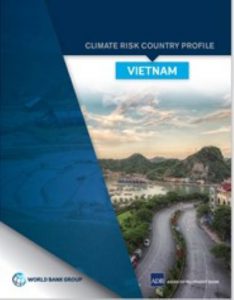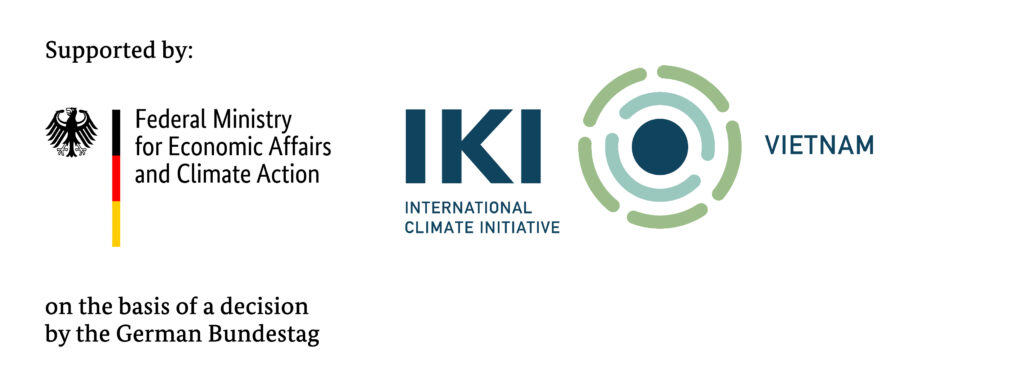World Bank together with ADB have just published a new climate risk profile for Viet Nam, recognizing the value of consistent, easy-to-use technical resources for their common client countries as well as to support respective internal climate risk assessment and adaptation planning processes. The report provides recent numbers and data on key vulnerabilities, climate baseline and projections, as well as measured climate change impacts, policies and programmes.
Key Messages:

- Projected temperature increases in Viet Nam are similar to the global average, ranging between 1.0°C and 3.4°C by 2080–2099 when compared with the 1986–2005 baseline. The range in possible temperature rises highlights the significant differences between 21st century emissions pathways.
- Rises in annual maximum and minimum temperatures are expected to be stronger than the rise in average temperature, likely amplifying the impacts on human health, livelihoods, and ecosystems.
- There is considerable uncertainty around future precipitation trends and the intensity of extreme events, in particular due to the current generation of climate models’ poor performan
- ce simulating the El Niño Southern Oscillation (ENSO).
- Viet Nam’s low-lying coastal and river delta regions have very high vulnerability to rising sea-levels. Depending on the emissions pathway 6 to 12 million people will potentially be affected by coastal flooding by 2070–2100 without effective adaptation action.
- Climate change is likely to increase the population affected by fluvial flooding, projected to be in the range of 3–9 million people by 2035–2044 depending on the emissions pathway.
- Losses of agricultural productivity are projected for key food and cash crops, multiple drivers have been proposed, including saline intrusion and shifts in the viable geographical range of plant species.
- As temperatures rise the increase in heat stress on the Vietnamese population will lead to negative health outcomes, particularly for poorer communities and outdoor laborers.
- Vietnam faces potentially significant social and economic impacts across multiple regions and sectors. Without effective adaptation and disaster risk reduction efforts multidimensional poverty and inequality are likely to increase.
Download the report: Climate Risk Country Profile – Vietnam – Viet Nam





